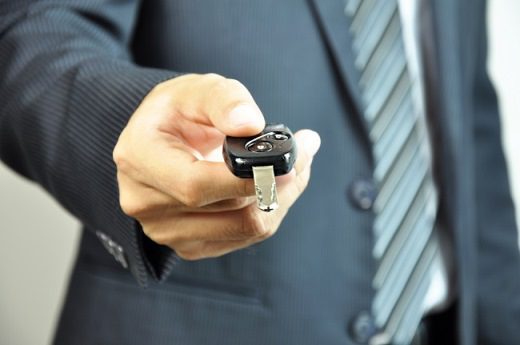So you’re in the market for a used car. The first question you probably have is whether you should buy from a private party or a licensed dealer or auctioneer.
There are certainly advantages and drawbacks to each. On one hand, you can save money by buying from a private party and you can avoid pushy sales people.
On the other hand, buying from a licensed dealer grants you certain guarantees and warranties.
So you may be wondering what exactly is guaranteed and warranted under the law. Let’s take a closer look so you know exactly what you’re getting with your purchase from a licensed dealer or auctioneer.
Statutory Warranty

When you buy a car from a licensed motor dealer or licensed chattel auctioneer, you may be able to get a statutory warranty at no cost to you.
When you buy a car from a licensed motor dealer or licensed chattel auctioneer, you may be able to get a statutory warranty at no cost to you. Statutory warranties expire after either 5,000 kilometers or 3 months, whichever comes first. The requirements for this warranty are as follows:
- The car must have fewer than 160,000 kilometres on the odometer
- The car must have been manufactured fewer than 10 years before the date of sale
- The vehicle can not be any of the following:
- Sold on behalf of a private party
- On the “written-off” register
- Past its warranty period
- Unregisterable due to its design
- A caravan
- A commercial vehicle
- A motorcycle
To take the guesswork out about vehicles do and don’t qualify, the dealer is required to clearly state the vehicle doesn’t come with a statutory warranty.
What It Covers
A statutory warranty will cover most part defects whether they stop working properly or altogether, with a few exceptions:
- CD player, radio, or tape recorder
- Batteries, radiator hoses, and fitted airbags
- Lights (with the exception of hazard or warning lights)
The ‘wear and tear’ parts and components that fall under the manufacturers service schedule, such as; fluids and filters, spark plugs, brakes, drive belts, clutch, rubber hoses and some seals – just to name the main areas
Claims and Repairs
If you have a part not listed above that needs a repair or replacement, you will need to notify the warrantor, who has 5 days to tell you whether the defects are covered.
For repairs, you’ll need to take the car either to the warrantor or an authorised repair shop. The shop will then have 14 days to repair the vehicle.
Each day your car is in the shop, it adds an extra day to your warranty term.
Consumer Guarantees

the law also provides certain guarantees at no cost when you buy from a licensed dealer or auctioneer. These are called consumer guarantees.
On top of a possible statutory warranty, the law also provides certain guarantees at no cost when you buy from a licensed dealer or auctioneer.
These are called consumer guarantees, and a dealer must honour them “for a reasonable amount of time” after the car is purchased. If the vehicle has any of the following issues, it is covered under this guarantee:
- Has undisclosed money owed on it
- Parts and repairs aren’t available for a reasonable amount of time
- Is not of acceptable quality
- Isn’t available for the business to sell legally
- Is not fit for normal road conditions it’s designed to handle
- Does not live up to any promises made about its condition, quality, characteristics, or performance
- Doesn’t match its demo model or description
- Does not come with the right for you to use and own it
You should note that this guarantee doesn’t cover you if you made any modifications to your vehicle after you purchased it or damaged the car due to your own misuse or negligence. Barring these exceptions, you can seek a remedy for any of the above guarantee violations, whether that be a refund, replacement, compensation, or repairs.
You can download comprehensive outline of your protections from the Australian Consumer Law Website.









